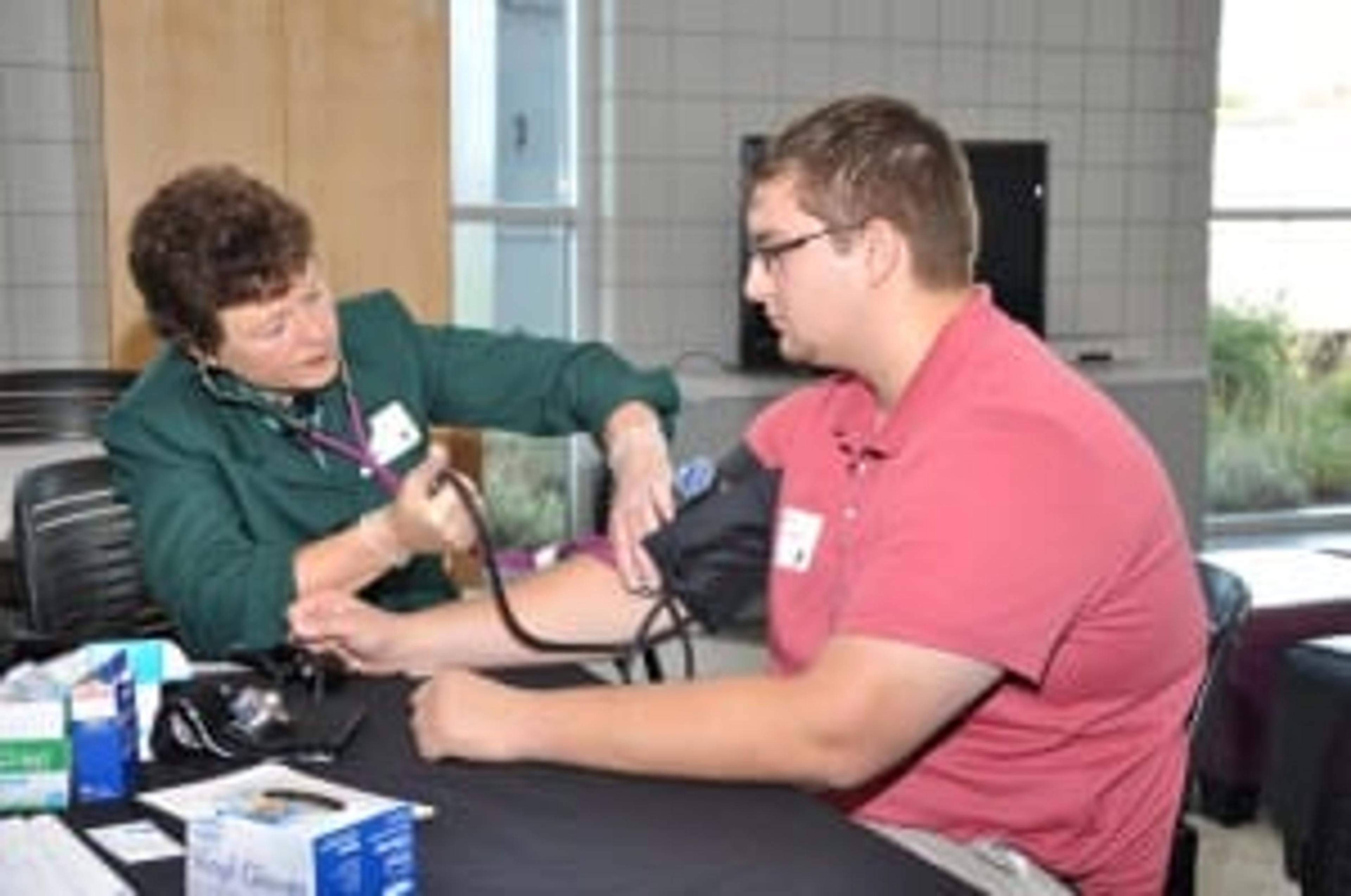The low down on managing high blood pressure naturally
Lara Abramov
| 2 min read

It has no signs. It wields no symptoms. You can have it without even knowing it. It can wreak havoc on your heart, corrode your kidneys and batter your blood vessels.
Sherry Bliar, YMCA, testing a volunteer's numbers at the BCN Wellness luncheon kickoff event on 09.24.12
It is contagious from a heredity standpoint. And nearlythirty percent of American adults have it.
It’s high blood pressure. And when the force of your blood pushes too hard against the walls of your arteries as your blood pumps through your heart, bad things can happen.
That’s why knowing your numbers is important. Less than 120/80 is considered normal. The systolic or top number, reflects your blood pressure as your heart beats and pumps blood; the diastolic or bottom number is what your blood pressure is between heartbeats.
The National Heart, Lung and Blood Institute categorizes blood pressure as follows:
Normal: Less than 120 over less than 80
Prehypertension: 120 – 139 over 80 – 89
High blood pressure:
Stage 1 140 – 159 over 90 – 99
Stage 2 160 + over 100 +
There are many ways you can lower your numbers, and plenty of medications on the market, but you can lower your blood pressure through natural ways as well. Lifestyle changes, of course, are key.
Without medication, you can lower your blood pressure by:
- Losing weight – Losing even 10 lbs. can provide tremendous benefits.
- Exercising – Just 10 minutes of walking or light strength training can help.
- Eating healthy – Consuming mainly fruits, veggies, whole grains and low-fat dairy has been proven to reduce blood pressure.
- Watching your sodium – Limit sodium intake to 2,300 mg a day.
- Limiting alcohol – More than one drink per day if you’re a woman or more than two if you’re a man is too much.
- Not smoking – Nicotine can raise your blood pressure for up to 1 hour after you smoke.
- Reducing caffeine – Caffeine may cause temporary spikes in blood pressure.
- Managing stress – Try to reduce, eliminate or think differently about things that cause stress.
- Knowing your numbers at home and visit your doctor – Ask your doctor about home monitoring during your regular visits.
- Leaning on your loved ones for support – Talking to your family and friends about what you’re going through.
If you deal with high blood pressure, what are you able to do to effectively manage it? Or do you have additional suggestions around lowering your blood pressure without medication?





